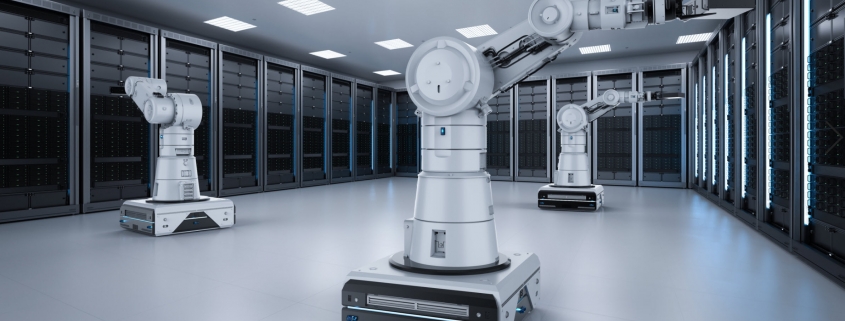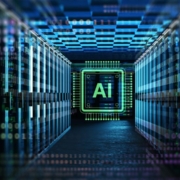Data Center AI (Artificial Intelligence) Creates New Risks
Artificial intelligence (AI) is being used in data centers to drive up efficiencies and drive down risks and costs. But it also creates new types of risks. This is one of the findings from a recent Uptime Intelligence research report #25, “Very smart data centers: How artificial intelligence will power operational decisions”, published in April 2019 (and available to Uptime Institute Network members).
Some of these risks are not clear-cut. Take, for example, new AI-driven cloud services, such as data center management as a service (DMaaS), that pool anonymized data from hundreds or thousands of other customers’ data centers. They apply AI to this vast store of information and then deliver individualized insight to customers via a wide area network, usually the internet. But that raises a big question: Who owns the data, the supplier or the customer? The answer is usually both: customers can keep their own data but the supplier typically also retains a copy (even if the paid service stops, the data becomes an anonymous part of their data lake.)
Whether lack of certainty or clarity over data ownership actually constitutes a risk to data centers is vigorously debated. Some say that if hackers accessed data, it would be of little use as the data is anonymized and, for example, does not include specific location details. Others say hackers could apply techniques, including their own AI analysis, to piece together sensitive information to build up a fairly complete picture.
This is just one example of the risks that should at least be considered when deploying AI. In our new report, we describe four areas of risk with AI offerings:
Commercial risk: AI models and data are (often) stored in the public cloud and outside of immediate control (if using a supplier model) or may be on-site but not understood.
- Commercial machine learning products and services raise the risk of lock-in because processes and systems may be built on top of models using data that cannot be replicated.
- Pricing may be increasing as adoption grows — at present, prices are low to attract new data (to build up the effectiveness of AI models) or to attract equipment services or sales.
- A high reliance on AI could change skills requirements or “deskill” staff positions, which could potentially be an issue.
Legal and service level agreement risk: Again, AI models and data are stored outside of immediate control (if using a supplier model) or may be on-site but not understood.
- This may be unacceptable for some, such as service providers or organizations operating within strict regulatory environments.
- In theory, it could also shift liability back to an Data Center AI service supplier — a particular concern for any automated actions provided by the service.
Technical risk: While we usually understand what types of data are being used for human actions and recommendations, it is not always possible to understand why and exactly how a machine reached a decision.
- It may not be possible to easily change or override decisions.
- As machines guide more decisions, core skills may become outsourced, leaving organizations vulnerable.
Interoperability risk and other “unknown unknowns”: The risk from the development of “2001” HAL scenarios (i.e., singularity) are over-played but there is an unknown, long-term risk.
- One example is that Data Center AI is likely to be embedded in most cases (i.e., inside an individual equipment and management system). This could lead to situations where two or three or five systems all have some ability to take action according to their own models, leading to a potential runaway situation — or conflict with each other. For example, a building management system may turn up the cooling, while an IT system moves workload to another location, which turns up cooling elsewhere.
——————————————————————————–
For more on Artificial Intelligence in the data center read our latest report, Very smart data centers: How artificial intelligence will power operational decisions, available to members of the Uptime Institute Network. Members share a wealth of experiences with their peers from some of the largest companies in the world. Membership instills a primary consciousness about operational efficiency and best practices which can be put into action everyday. For membership information click here.

 Getty
Getty








 Uptime Institute, 2019
Uptime Institute, 2019